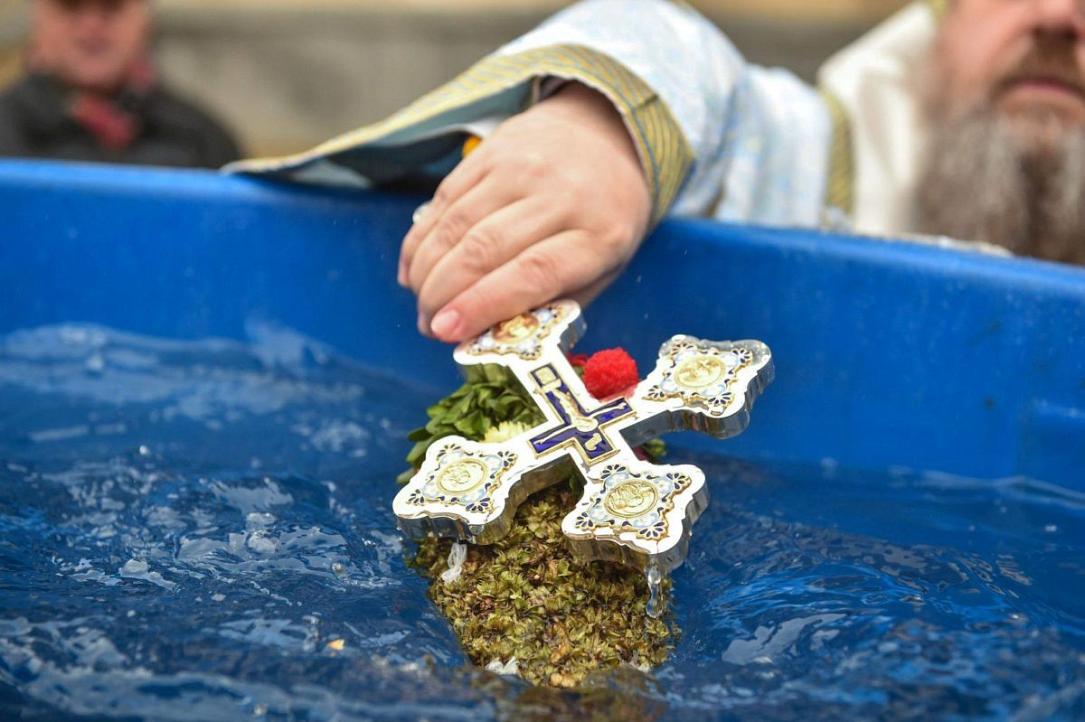Local traditions: Priests bless the waters on Epiphany Day in Romania

The Epiphany (Boboteaza in Romanian), which is celebrated annually on January 6, is one of the most important religious celebrations among Romanian Christians.
This holiday marks the day when Jesus was baptized in the Jordan River by John the Baptist (the Saint celebrated the next day, on January 7). The Epiphany and St. John’s Day mark the end of the winter holidays.
Like most religious celebrations in Romania, the Epiphany is also surrounded by many traditions and superstitions, with the most important tradition being the blessing of waters.
The celebration starts on the eve of the Epiphany, on January 5, when the priests across all Orthodox churches begin to bless the waters. The holy water (aghiasma in Romanian) is then given to the people on the Epiphany day, after the religious mass. For example, this year, the Archdiocese of Tomis (Constanta) will prepare 150,000 bottles of holy water, which will be given to the believers after the religious service that will be organized on the shore of the Black Sea on January 6. The believers use the aghiasma to bless their houses, goods, and animals, as it is believed that this blessed water has miraculous powers and protects them.
In fact, some of the Epiphany religious ceremonies take place near large bodies of water, such as rivers or the sea, in Romania. After the priests bless the waters, they throw wood crosses into the cold water and young men go in their search. It is believed that the one who finds the cross and brings it back to shore will get purified of all sins and will have good luck the whole year.
An ice cross is usually placed in front every Orthodox Church in Romania on Epiphany Day. However, this year, most churches had difficulties in making the ice crosses. The usually pour water into molds and let it freeze or cut ice blocks from lakes, but the unusually warm weather for this period has made this impossible. The Archdiocese of the Lower Danube in Galati had the 1.5-meter-high cross made in the lab this year, according to local publication Mediafax.
Epiphany Day usually brings very cold weather, known as "gerul Bobotezei" (Epiphany Day frost). However, this year, temperatures are expected to go over 10 degrees Celsius in most of the country on January 6. The hot weather may be a bad sign for the year to come, as it is believed that the fruit trees will make a lot of fruits if they are covered in frost in the morning of Epiphany Day.
It is also said that single young girls who put a twig of basil under their pillow the night before Boboteaza will dream their future husband. Moreover, the young girls who slip on ice on the Epiphany Day will for sure get married that year. So, don't be surprised if the number of weddings will fall this year.
It is also believed that on the night before Epiphany, at midnight, domestic animals start talking about places where treasures are hidden.
On Epiphany Day, women are not allowed to do laundry as all the waters are blessed. Moreover, according to some local superstitions, people shouldn’t fight on this day, nor borrow things and money.
Irina Marica, irina.marica@romania-insider.com
(Photo source: Agenția de știri Basilica on Facebook)















